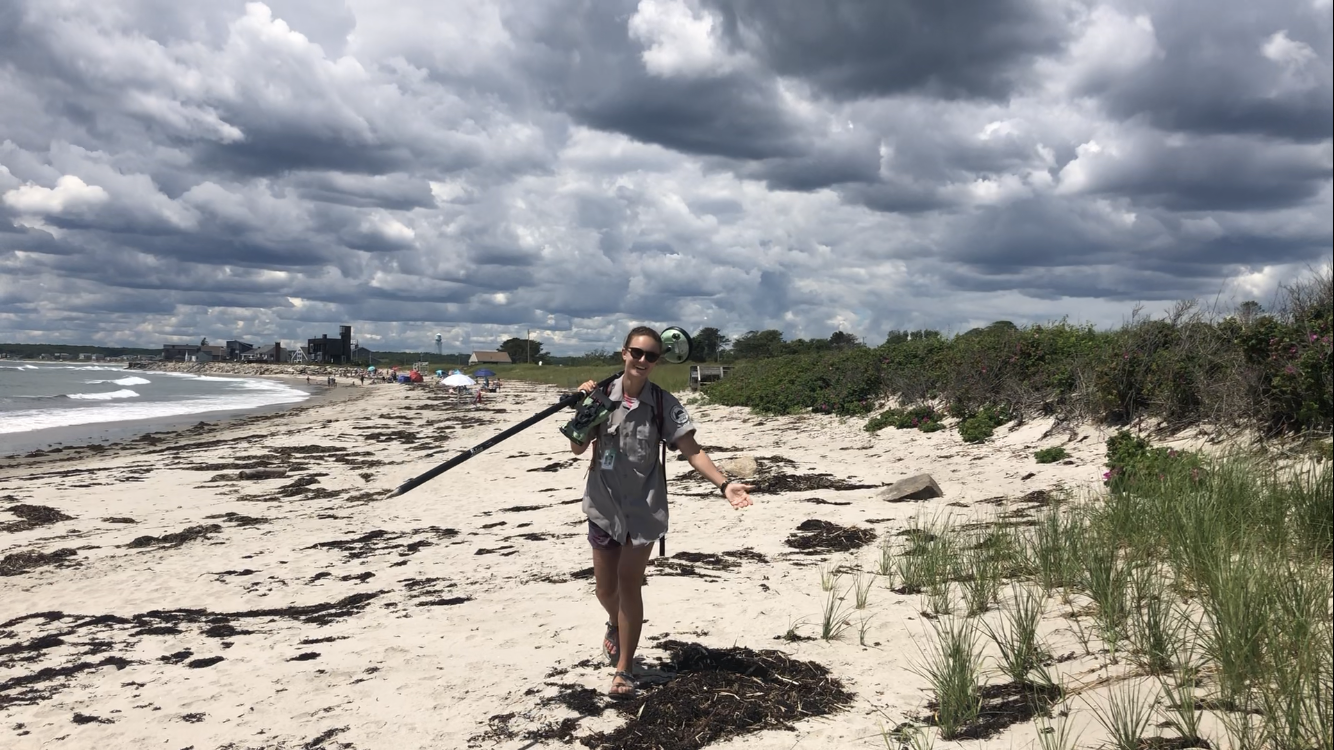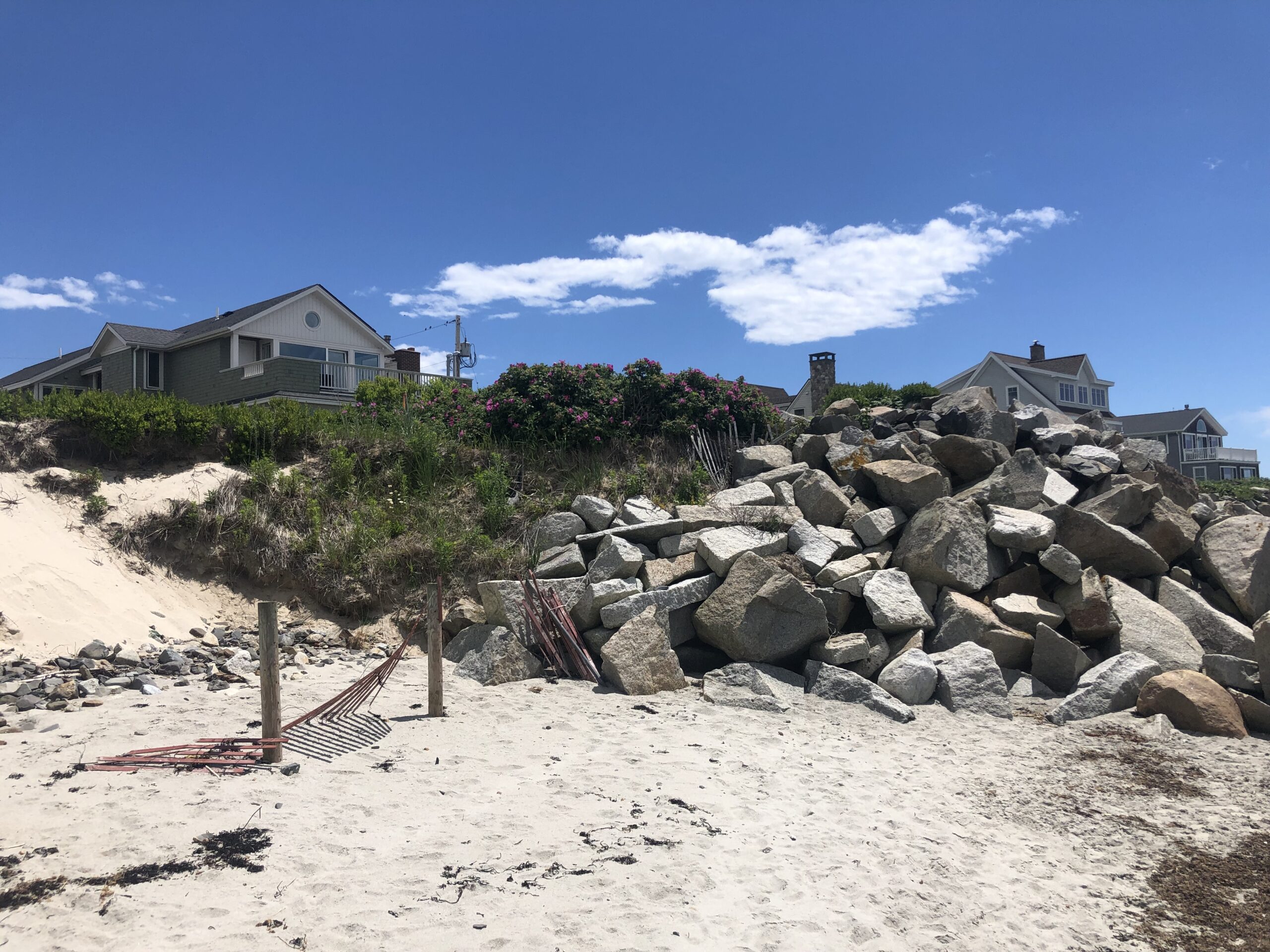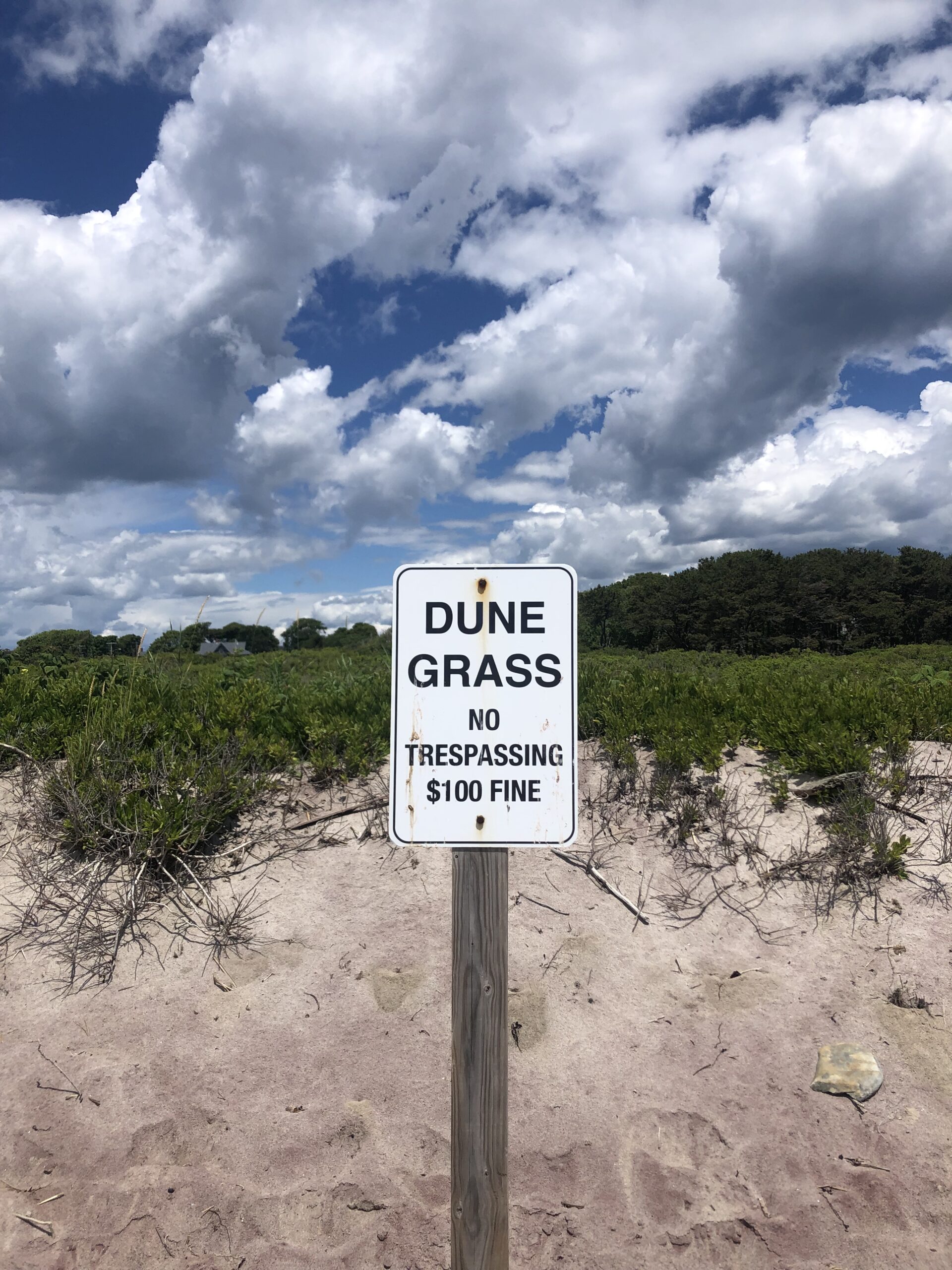Outlook explores variables that shape and influence individuals relationships with nature and how they seek to inspire, adapt and reimagine what conservation can look like moving forward in a world where Climate Change is affecting a broad range of human and natural systems.
Author: Chas Van Damme, SMCC Summer Associate. A rising senior at Bates College studying Environmental Studies with a focus in Global Environmental Politics.
OUTLOOK: An afternoon “WALK & TALK” with Natalie Meenan, beach surveyor with the Maine Geological Survey.
A couple days ago, while droves of seagulls swept around in front of my favorite beach spot, stealthily making a lunch out of what was seemingly some little kid’s cheese sticks, I couldn’t help but dream about what it would be like to bask endlessly under the sun, listening to streams of waves crash against the sandy shoreline. For Natalie Meenan this dream is somewhat of an everyday reality. The important distinction being that she is not basking at all, but instead toting a large GPS contraption across miles of several beaches in Southern Maine as a surveyor with the Maine Geological Survey (MGS).

I recently had the privilege of joining Natalie on one of her surveying days at Fortunes Rock Beach in Biddeford to pick her brain about her work, interests, and thoughts on climate change. Originally from Friday Harbor, Washington, where several years of guiding kayak tours nurtured an appreciation for the outdoors, she now finds herself as far as she could possibly get from home: studying Geology at Bates College in Lewiston, ME. On our walk, she described a pressing need to address the ever-growing impacts of climate change, focusing particularly on the coast where sea level rise and erosion are perhaps most easily visible. It’s this motivation that drew her to work as a coastal intern with the MGS this summer.
As we walked the coastline, Natalie explained the technical aspects of her work. Her (very fancy) GPS system tracks her every movement, logging both the mean high water line and dune line at a given beach. These variables are particularly important in analyzing the changes in coastal environments as they inform research into sea level rise, dune recession, habitat destruction, and much more. When compared with the 15+ years of previous surveying work done on locations like Fortunes Rock, we are able to see just how quickly coastlines are shifting. Every two years, the data that folks like Natalie collect is pooled together and analyzed in MGS’ State of Maine’s Beaches Report, which provides key insight for town and state-level policymakers hoping to remediate the coastal impacts of climate change.
“When it comes to coastal environments like beaches,” Natalie noted, “change is completely natural – dunes will recede, the high water line will fluctuate, and sediment will find itself new homes. What is concerning, however, is that these environments are changing at unprecedented rates.”
Human-induced climate change is speeding up these processes and sharpening the teeth of their impacts. In response, residents along coastlines are working to adapt to these new realities by building up seawalls, rewilding and reinforcing dunes, and finding ways to protect sensitive areas. As you see below, a few of these attempts were evident at Fortunes Rock.


But to what extent is climate adaptation sustainable? Homes built on beaches will always be subject to gradual natural environmental changes. As these changes grow in scale is adaptation potentially becoming a feat of futility? The large boulders lodged along the northern end of Fortunes Rock Beach might speak to this. For now, they are doing their job of protecting the beautiful homes above them, but the dunes just 10 feet south are continuing to recede. What’s next? Install barriers to protect those dunes? Potentially explore natural erosion-prevention measures such as planting native beach grasses? There is no clear-cut answer. Yet one thing’s for certain: so long as we depend on living along coastlines, adaptation will be an ongoing process requiring new ideas, innovations, and research from hardworking people like Natalie.
Research has always been foundational in the pursuit of climate resolution – a concept that the Climate Change Observatory Network is no stranger to. Natalie and I noted that the presence of a Climate Change Observatory site in places like Fortunes Rock could facilitate the documentation of coastal changes. By pooling a series of photographs of a given location over a long period of time, these sites provide a visual repository of change. When seen in tandem with the data collected by people like Natalie, CCO sites would help guide us on the steps toward climate resilience.
I am thankful to Natalie for allowing me the time to join her on such a lovely expedition, even if it meant pestering her with too many questions!

